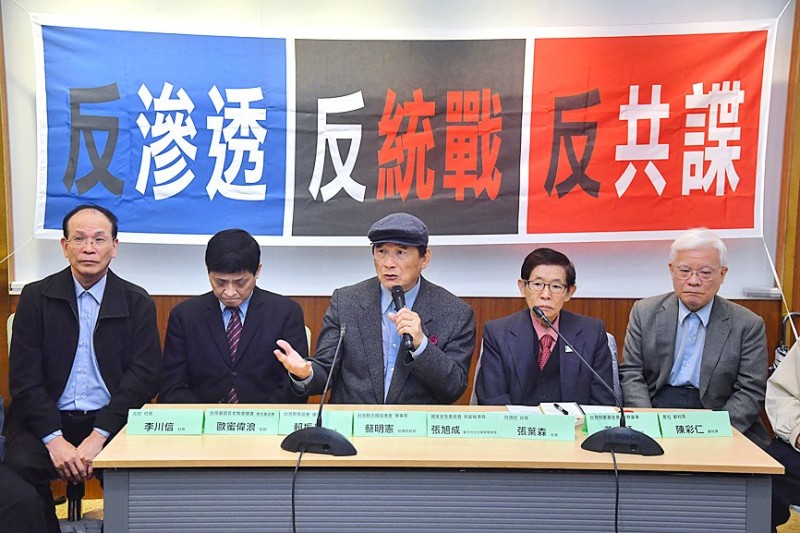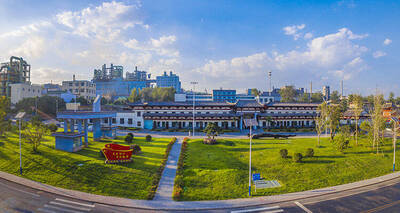《TAIPEI TIMES》 Ex-MND boss warns of infiltration bids

Former minister of national defense Michael Tsai, center, yesterday speaks at a news conference at the Legislative Yuan in Taipei as Northern Taiwan Society deputy chairman Li Chuan-hsin, left, Association of University Professors president Lai Cheng-chang, second left, and former National Security Council deputy secretary-general Parris Chang, second right, listen. Photo: CNA
APPROACHED: Michael Tsai said that the TAO tried to invite him to a conference in China and a promised meeting with the CCP’s leader eight months after he left office
By Ann Maxon / Staff reporter
Former ministry of national defense Michael Tsai (蔡明憲) yesterday called for greater caution against Beijing’s infiltration, saying that high-level Chinese Communist Party (CCP) officials had tried to establish contact with him months after he left office in May 2008.
“China’s infiltration programs target not only the Chinese Nationalist Party [KMT] and the media, but also people in the pan-blue camp and even those in the Democratic Progressive Party [DPP] and the pan-green camp,” Tsai told a news conference in Taipei.
A Taiwanese entrepreneur doing business in China had relayed a message to him from China’s Taiwan Affairs Office (TAO), he said.
“The TAO wanted to invite me to attend an international conference in China and they said I would be received by the leader of the CCP,” he said.
“I thought that was very strange because I had stepped down less than eight months ago. So I firmly refused,” Tsai said.
While self-confessed Chinese spy William Wang Liqiang’s (王立強) stories about China’s intelligence operations in Taiwan have brought more attention to the subject, the discussions have only touched the tip of the iceberg, he said.
The National Security Council in September said that China had been using all possible means to influence the Jan. 11 elections and proposed five countermeasures, so “I hope President Tsai Ing-wen’s (蔡英文) national security team would fully implement those measures,” Tsai added.
The DPP caucus’ version of an anti-infiltration bill, which stipulates a prison term of up to seven years or a fine of NT$5 million (US$163,866) for those who act on behalf of “foreign forces” to disrupt social order, and bans political donations and other political activities under the instructions of such forces, advanced to a second reading on Friday.
The KMT had previously obstructed the bill, but is now proposing an alternative, which would prevent the “annexation of the Republic of China.”
The KMT boycotted the legislative meeting on Monday last week to “prevent the DPP from posting the voting results online and portraying the KMT as siding with Beijing on Chinese interference,” KMT Legislator Alicia Wang (王育敏) said on Friday.
Meanwhile, Taiwan Association of University Professors president Lai Cheng-chang (賴振昌) said “the biggest national security problem” is that the government has to deal with groups of Taiwanese who support the CCP from within the nation.
For example, when Wang’s allegations were first reported, many in the pan-blue camp took the same stance on his claims as the CCP’s, Lai said.
The Reverend Omi Wilang, a Presbyterian minister, said the CCP has been trying to win the hearts of Taiwanese religious groups even as it cracks down on religious freedom in China.
“We strongly condemn the way in which the CCP has been tearing down churches and temples in China while inviting Taiwanese religious groups to China and offering them special treatments,” he said. “The two-faced approach is also part of its tactic to promote unification.
新聞來源:TAIPEI TIMES



















